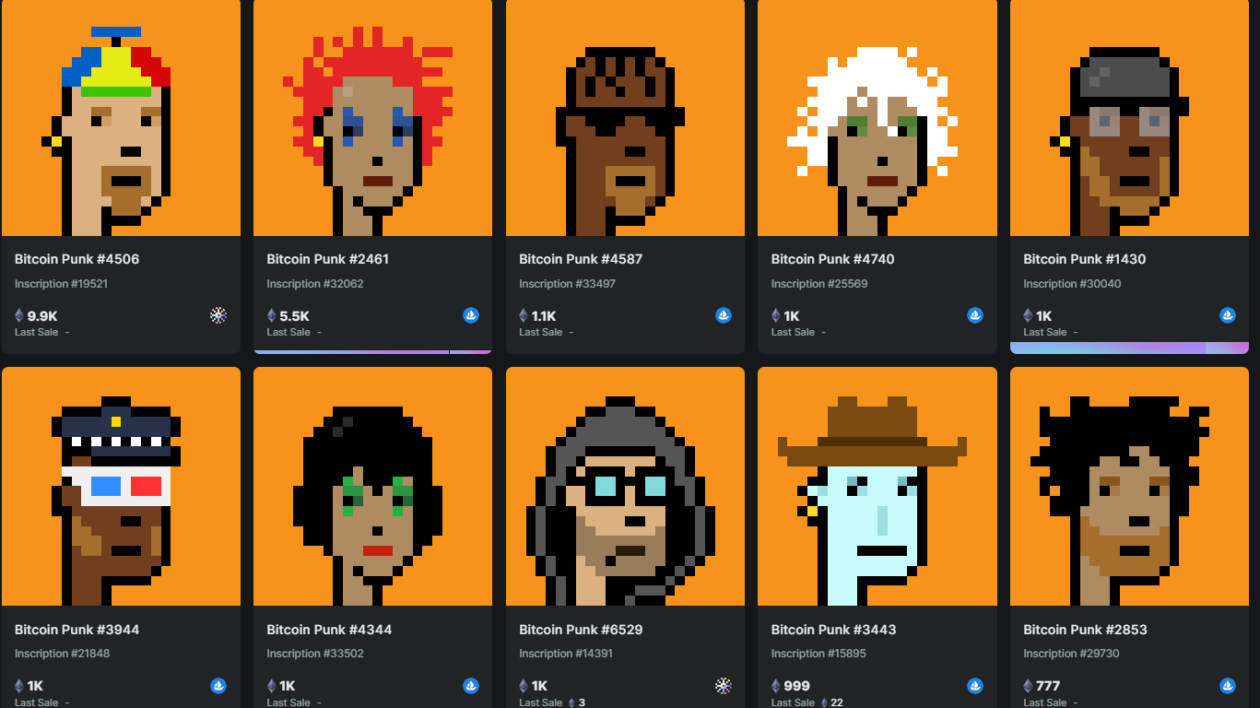The Bitcoin blockchain has been facing a growing backlog of transactions in recent days amid the arrival of memecoins on the network.
The market capitalization of BRC-20 tokens, a fungible tokens standard built on the Ordinals protocol that is fueling the memecoin surge on Bitcoin, surpassed US$1 billion on Tuesday, before retreating to US$588 million as of 6:00 p.m. in Hong Kong Thursday, according to data provider BRC-20.io.
Headlined by memecoin rising star Pepe, over 14,300 types of BRC-20 tokens are contributing to jamming up the blockchain thanks to Ordinals, a protocol that allows data to be inscribed in the smallest monetary unit of Bitcoin, satoshi. The inscription also brought a version of non-fungible tokens (NFT) to Bitcoin.
“The primary driver of this congestion and the related surge in transaction fees are inscriptions that use the BRC-20 minting standard,” said Colin Harper, head of research and content at Bitcoin mining software and services firm Luxor Technologies, in an email.
Bitcoin’s network congestion can be measured by its memory pool size, or mempool, the queue of pending valid transactions waiting to be added to blocks. It is often measured in virtual bytes (vbytes), and a single Bitcoin block can theoretically hold up to a million vbytes.
Over 298,312 transactions were waiting to be validated as of 6 p.m. on Thursday, which is equal to a near one-month high of 186.7 million vbytes. Bitcoin’s mempool size stood at 3.31 million vbytes on April 24, according to on-chain data from mempool.space.
The expanding mempool size caused Bitcoin transaction fees to rise to US$30.91 on Monday, the highest in two years. This dropped to US$14.05 as of 6 p.m. in Hong Kong, according to Chicago-based investment software company ycharts.
“[BRC-20 inscriptions] use JavaScript Object Notation (JSON) file format which is relatively data heavy. Combine that heaviness with the ‘first-come, first-mint’ incentives that BRC-20 mints create and you have a recipe for transaction congestion,” wrote Harper,
Miners profit from Bitcoin congestion
With the heating memecoin economy on the Bitcoin blockchain, the network surpassed 5 million Ordinals inscriptions on Tuesday, according to data from Dune Analytics.
The congestion may have lengthened waiting times for Bitcoin users, but Luxor Technologies’ Harper said that the BRC-20 standard essentially doubled miner revenue.
“Surging fees will price out some transactions for sure, but I doubt that this BRC-20 minting mania will last too much longer. Fees may become elevated like this from time to time with different inscription mints or other demands for block space, but they will revert to the mean eventually,” wrote Harper.
Nazar Khan, the chief operating officer and chief technology officer of U.S.-based Bitcoin mining company TeraWulf, also expects transaction fees to return to normal in the short term.
“While we expect transaction fees to return to lower levels in the next couple of weeks, we believe this episode highlights how varied the use case for the Bitcoin network can be over time. Whatever the short-term impacts of surging transaction fees may be today, Bitcoin is the most secure and robust network that exists and will continue to attract increasing levels of activity,” added Khan.
Enough memes for Bitcoin?
While miners welcomed the revenue surge, some Bitcoin developers are campaigning to phase out Ordinals and BRC-20 tokens from the network.
“Action should have been taken months ago. Spam filtration has been a standard part of Bitcoin Core since day 1. It’s a mistake that the existing filters weren’t extended to Taproot transactions. We can address that, or try a more narrow approach like OP_RETURN (ie, what “Ordisrespector” does). Since this is a bugfix, it doesn’t really even need to wait for a major release,” said Bitcoin Core developer Luke Dashjr in an email dated May 8.
NFT supporters, including Washington Sanchez, the NFT product lead at U.S.-based cryptocurrency exchange Kraken, brushed off Dashjr’s threat on social media.
“Luke is waging a 1 man jihad against Ordinals, I doubt the other devs will take him seriously based on their precious comments that Bitcoin was working as expected if people are submitting valid transactions,” tweeted Sanchez.
However, online discussions show that Dashjr has some support from the Bitcoin community.
“[Bitcoin] was not originally intended to support tokens or smart contracts,” one user wrote on bitcointalk.org, an online cryptocurrency forum launched by pseudonymous Bitcoin founder Satoshi Nakamoto. “These changes are breaking the network and eroding the years of trust that Bitcoin has created.”
See related article: Bitcoin’s mempool congestion eases after millionth Ordinals inscription






